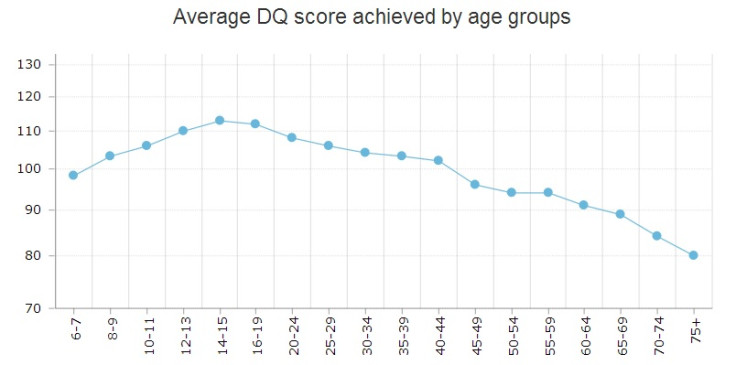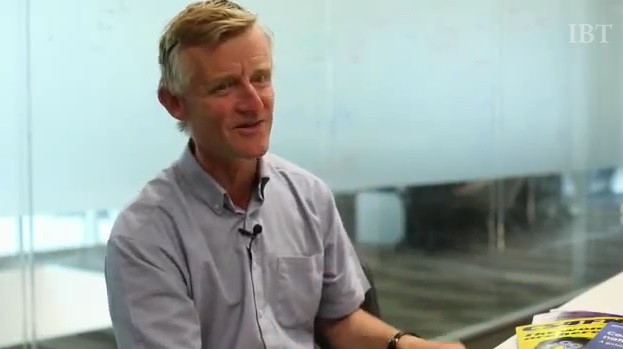Coding in the Classroom: Will the New National Curriculum Actually Work?

The biggest overhaul to the national curriculum since 2000 has launched. Children coming back to school this week in England were greeted by new programmes of study and entirely redesigned subjects - most significantly of all being that of Computing.
As part of the new curriculum, every child at primary and secondary school will be taught computer science as a "foundational discipline", with coding a core component to this.
Such reforms are to "ensure every child leaves school prepared for life in modern Britain", according to the Department for Education, and while the general consensus seems to be that the changes are necessary, there are still many challenges left to face before it can be perceived as a success.
Kids more tech-savvy than teachers
A recent Ofcom study revealed that the "millennium generation" of 14 and 15-year-olds have the highest confidence and knowledge of technology. Perhaps more worrying was the discovery that six-year-olds were more tech-savvy than 45-year-olds.

This is the worry of one primary school teacher, who told IBTimes UK that it was his experience that children picked up technology very quickly and had a knowledge that often surpassed that of the teachers.
"In my experience, children are already ahead of teachers in terms of coding by year six [age 10]. In some cases they're miles ahead," Joe (who requested his surname was not published), told IBTimes UK. "It will take a couple of years for it to find its feet."
Joe suggests taking advantage of children's accelerated learning curve when it comes to this subject by pairing strong students up with others that may struggle.
Teacher resistance
In 2012, Estonia became the first country to introduce coding as a compulsory part to its computing curriculum. Through the ProgeTiiger (pronounced 'proga- tiger') programme, kids from the age of seven to 19 have been taught computer programming in an attempt to give them a better understanding of the technology around them.
The two biggest challenges faced by the government have apparently been reluctance from the teachers and a lack of proper equipment.
After two years, those involved say that equipment is less of an issue now but there is still some resistance from teachers, who find it hard to accept teaching what is essentially an alien language to them. Despite this, it has been broadly well received by both parents and children, who apparently consider the coding classes "like playtime".
"I think we are just taking our first steps, so it would be too early to say something," Andres Aaremaa, head of the Information Technology Foundation of Education in Estonia, told IBTimes UK. "But my personal opinion is that it will definitely be a success."
Ready for lift off
Mari-Liis Peets, a project manager at the same foundation who was involved in the ProgeTiiger programme, believes that one of the most noticeable outcomes will be the career paths of those taking part.
"I think it will be interesting to see, maybe after five years or so, how these children who have been involved in this programme and have learned programming or robotics - how they will choose their careers," Peets said.
"It will be interesting to see how this programme has influenced them in this way but we can't say right now 'are we doing the right thing?'"

Introducing such a drastic change to the national curriculum has been compared to the launching of a rocket by the man overseeing the the new computing programmes of study.
Simon Peyton Jones, chair of the Computing at School (CAS) group, believes that such a change is however essential and will serve to improve children's understanding of the world, boost the UK's tech credentials, and even bridge the gender gap in the field of technology.
But Peyton Jones warns that it will be 10 years before the first child completes the full course of the curriculum, and it will therefore be a decade before such results can really be judged.
"My mental image is that it's like a rocket taking off," Peyton Jones said. "Lift off is a very important moment. The rocket can explode on lift off and kill all aboard and lift off for me is this September.
"I don't think we're going to explode. Exploding will mean disaster and disappointment and disillusionment and everybody thinking that this was a bad idea. I think we've got the vibes right but there is a long way to orbit."
© Copyright IBTimes 2025. All rights reserved.






















